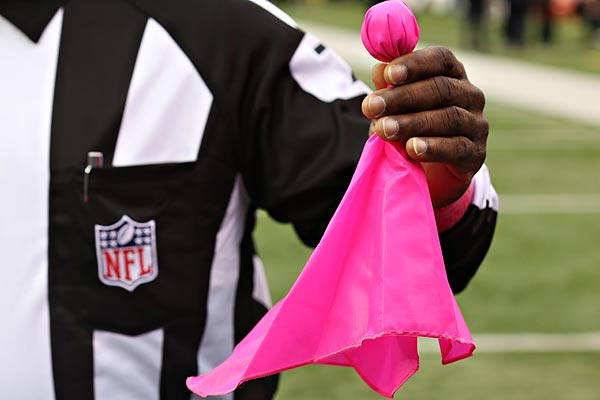
If you’ve seen a NFL game this month, you know that it’s National Breast Cancer Awareness Month. While raising awareness and money for research is admirable and important, October is prime time for the media’s continued campaign of scare tactics and junk science about BPA.
I’ve been writing about this phenomenon ever since I read “Spin Sisters: How the Women of the Media Sell Unhappiness – and Liberalism – to the Women of America” by Myrna Blyth. Blyth, a former editor at several mainstream women’s magazines, wrote about how the media uses scary headlines like “The Killer in Your Purse!” and junk science in order to sell magazines. (In the case of the purse, the “killer” was the weight of your purse.)
BPA is a chemical widely used in products like canned goods (to prevent botulism), plastics, and even thermal cash register tape. Earlier this week USA Today ran yet another article perpetuating a link between products with BPA and breast cancer. From the article by Liz Szabo:
[Tuft University’s Ana] Soto says it’s possible that prenatal BPA exposure makes fetuses more sensitive to estrogen, a hormone that drives the growth of most breast cancers. In that way, BPA could indirectly increase the risk of breast cancer later in life.
“It’s possible.”
“Could.”
“Indirectly.”
These are all phrases to mask the fact that dozens of government and health organization studies around the world have shown that BPA is safe. At Forbes.com, Trevor Butterworth calls out USA Today reporter Liz Szabo’s bias by omission.
USA Today either isn’t aware of or completely ignores a mass of recent research into BPA that directly bears on its article. But this has been a hallmark of the media coverage of the chemical and not just from this reporter or newspaper: Why go to researchers at the CDC, EPA or FDA when you can get a scary quote from an activist group, or keep quoting the same scientists over and over again without noting that their work can’t be replicated or is contradicted by the work of the regulatory agencies? Get a stock quote from an industry group providing “the other side” and you have balance – but not insight.
USA Today’s Szabo cites a study that “increased the risk of mammary cancers in lab rats” but doesn’t report that the authors of the study later retracted their title and that independent sources found huge flaws in the study. Among them, that they used rats that are more susceptible to cancer, BPA was injected into the rats (humans obviously don’t ingest BPA this way), and it was injected in amounts 1,250 times the average human consumption.
Of course, we know the media, particularly when it comes to science (fiction) reporting, only cares about advancing an anti-business narrative and exploiting people’s fears. I can’t help but wonder where all the mainstream media articles are about increased risk of breast cancer from lifestyle choices like not having children, not breast-feeding, or even abortion. Julie Gunlock of the Independent Women’s Forum wrote, “Women need facts about cancer, not wildly off-base assertions by unethical, ambitious headline-seeking researchers and organizations determined to promote junk science in the name of regulating the chemical industry.”
Whether it’s Al Gore claiming we’ll be 50 feet underwater or ridiculous claims about increased risk of breast cancer from cash register tape, the media is there to stoke people’s fears to sell a few magazines or gain viewers. All their noise about businesses endangering people’s health for profit is just projection. They are guilty of the very things they claim to expose.
COMMENTS
Please let us know if you're having issues with commenting.